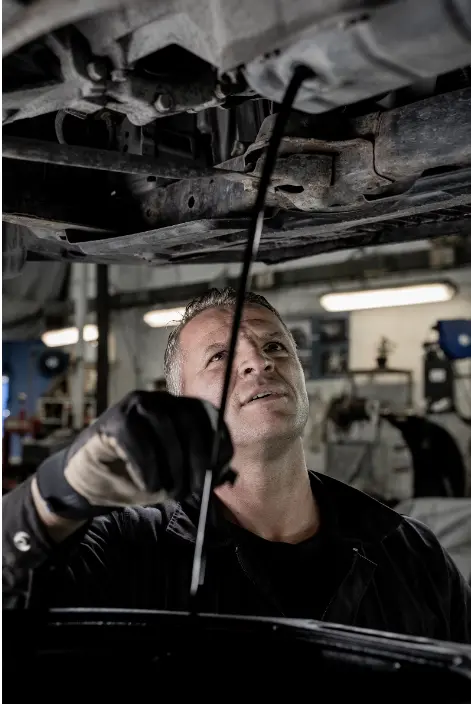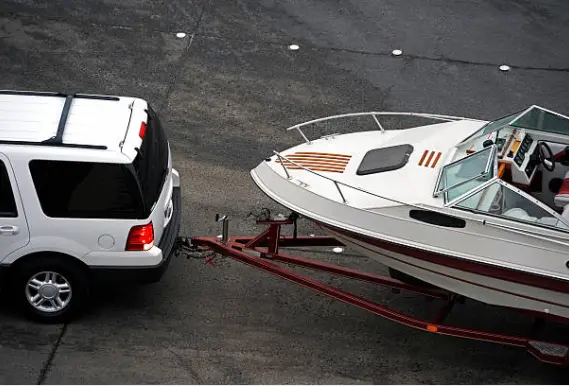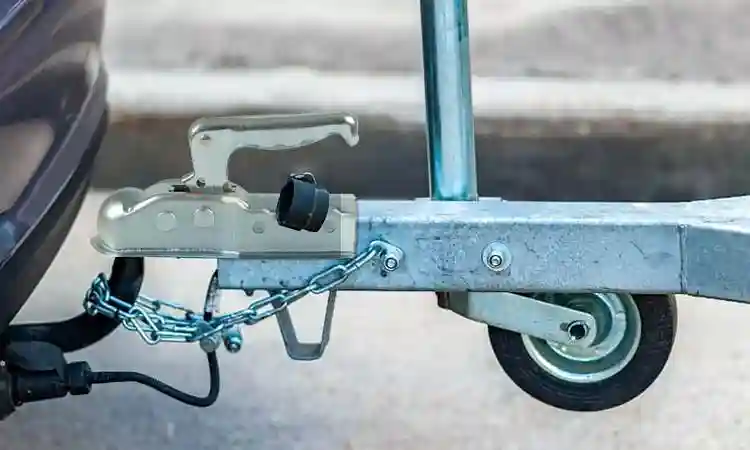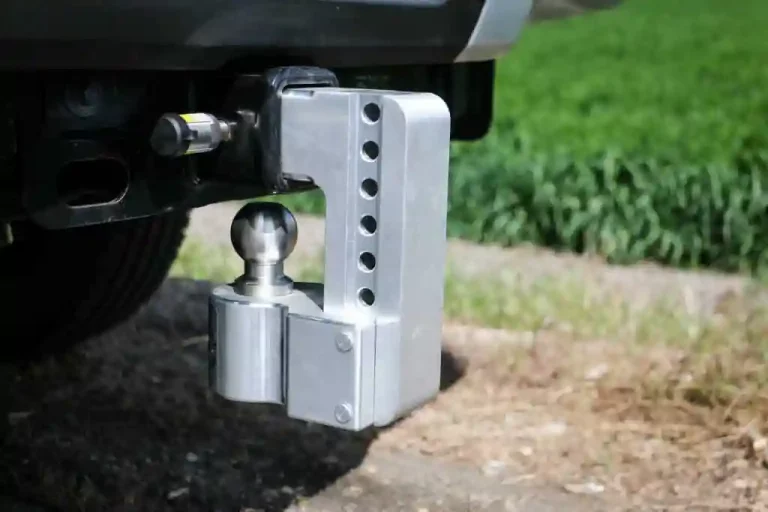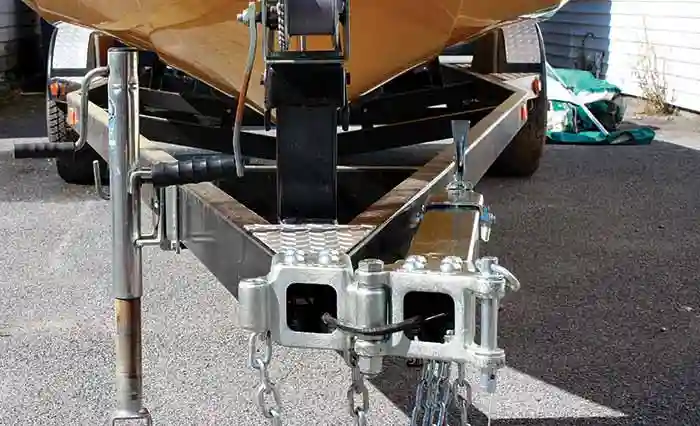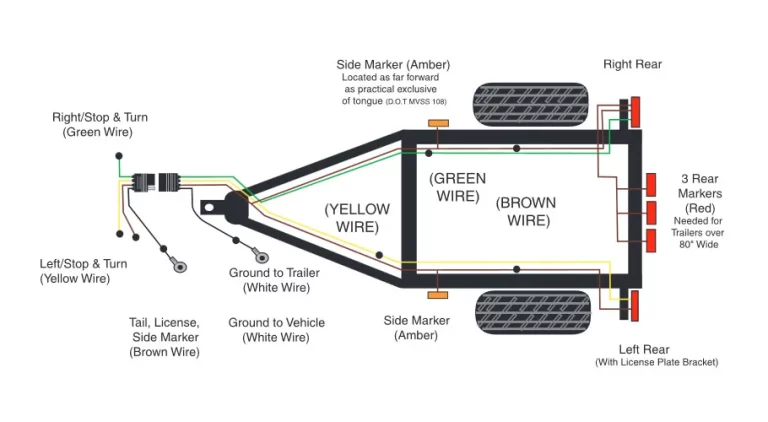When choosing a trailer for your boat, it’s important to consider the size and dimensions of your vessel. Making sure that the trailer can properly accommodate your boat is key. The length and width of the boat will impact the design of the trailer, especially if you have a boat that may need a custom-made trailer.
Dimensions
The trailer must align with the exact dimensions of your boat to ensure a secure fit. A trailer that is too large can lead to excessive movement during transport, while one that is too small may not adequately support the boat, risking damage. It’s important to measure the boat without any external gear and include considerations for overhang, as this can affect trailer selection.
Weight and Load Capacity
When checking a boat trailer’s specifications, for suitability and safety measures to take into account weight constraints is factor to consider as well like the boat’s dimensions and design principles that a boat trailer follows. These limits are set based on how the trailer is built and the arrangement of its axles. To guarantee that the trailer can handle not only the boat’s weight but also any extra equipment you might have onboard, it is important not to go beyond the recommended load capacity as it can impact how well the trailer performs and its safety while traveling on roads.
How to Determine the Right Trailer Type?
Choosing the trailer for your boat depends a lot on the shape of your boat’s hull as there are various trailer designs that work well with different hull types.
Importance of Hull Shape Compatibility
If your boat has a V shaped hull design and you use a trailer that complements this shape properly, it will offer stable support. Conversely, bottomed boats need a trailer with a different design. Making sure the hull and trailer are compatible is crucial for transport and securely fastening the boat in place.
Drive-On vs. Roller Trailers
When deciding between drive on and roller trailers for your boat, needs to consider how each type affects functionality differently. Drive on trailers are useful for boats that can be easily driven onto the trailer for quick loading. Roller trailers use rollers to help with loading and unloading, making them better suited for boats. Evaluate your requirements to figure out which loading approach matches your boating habits.
Is Single Axle or Tandem Axle Better for Your Needs?
When you’ve got a grasp of the type of trailer you need for your needs in mind, think about whether a single axle or tandem axle trailer would be the best fit.
Pros and Cons of Single Axle Trailers
Single axle trailers are commonly lighter and more maneuverable than their counterparts, which’s advantageous for smaller boats due to their simplicity and affordability in design, but the downside lies in their restricted weight capacity, making them less suitable for transportation of larger or heavier loads.
Advantages of Tandem Axle Trailers
Dual axle trailers are favored for heavier boats due to their improved weight distribution and support capabilities compared to single axle trailers. They offer increased stability during transportation, reduce the chances of trailer swaying. However, dual axle trailers may require skill to maneuver and are usually heavier than single axle models.
Why Does Construction Material Matter?
The type of material used in building your boat trailer plays a role in how well it performs and how long it lasts.
Steel vs. Aluminum Trailers
Steel trailers commonly provide enhanced strength and lasting durability that makes them ideal for tough tasks and situations; nevertheless, they might be prone to corrosion if upkeep is neglected. It is crucial to conduct checks on properly galvanized steel to prevent this issue from escalating.
Aluminum trailers are typically lighter and more resistant to rust than steel trailers. May have a lower weight capacity. They offer handling and require less upkeep; however, it’s crucial to verify that they can handle your boat’s specific requirements effectively.
To sum up, the decision making process on selecting the boat trailer involves taking into account various aspects such as your boats specifications and the compatibility of the trailer type and axle configuration with it, along with the construction materials used in its making. With regards to quality and personalized choices for a boat trailer, it’s worth looking into Go Trailer for a selection of trailers that are customized to meet your requirements or delving deeper into their options for Customization services.
Selecting the boat trailer can greatly improve your enjoyment of boating activities, so it’s important to carefully consider these aspects to guarantee that your trailer is a safe and efficient match for your individual requirements.
What About Braking Systems?
Choosing the braking system for your boat trailer is crucial to ensure safe and efficient towing operations as trailers come equipped with different braking systems tailored to specific needs depending on the size and weight of your boat.
Surge Brakes
Many boat trailer owners prefer surge brakes for their functionality that kicks in when the towing vehicle decelerates—offering a smooth braking process thanks to inertia activation on the trailer side of things! This setup proves handy for folks who often haul smaller to sized boats around; nonetheless, it’s essential to install surge brakes correctly and keep up with regular maintenance for top-notch performance and safety during your travels.
Electric Brakes
Electric brakes are a choice that offers excellent control and responsiveness while towing a trailer or boat. They work using an actuator and need a brake controller to be set up in your towing vehicle. These brakes are particularly beneficial for boats because they offer more effective stopping power compared to surge brakes. Furthermore, such brakes enable braking where the trailers brakes engage based directly on the speed and force applied by the towing vehicles brakes.
Are Towing Vehicle Compatibility and Local Regulations Important?
It’s important to make sure your towing vehicle and trailer are a match to stay safe and efficient on the road, and to follow local rules to avoid getting fined or facing penalties.
Matching Towing Vehicle Capabilities
When choosing a boat trailer for your towing vehicles needs, look into the capabilities of the vehicle. Properly choosing a boat trailer is important in ensuring transportation when towing vehicles come with tow ratings that vary, and it is crucial not to exceed these limits. Doing so can result in risky situations during transit. To find the right fit, refer to your vehicle owner’s manual as it usually lists the maximum towing capacity. Using this information will help you select a boat trailer that aligns with your vehicle’s specifications, enhancing safety while towing.
Understanding Local Regulations and Compliance
Choosing the boat trailer is heavily influenced by local rules and regulations that dictate the size and weight limits allowed on public roads. In areas different criteria exist for trailers, such as safety measures, lighting, and registration that individuals must adhere to. Disregarding these regulations could result in delays, fines, potentially having your trailer confiscated. It is crucial to ensure your boat trailer complies with these rules not only to avoid legal trouble but also to prioritize safety during transportation.
How Do Launch and Retrieval Conditions Affect Your Choice?
The environment where you plan to launch and retrieve your boat will greatly impact the trailer you choose to use, as certain features may be more beneficial depending on whether you launch in shallow or deep waters.
Suitable for Shallow Water Launches
For launching in waters, a specialized trailer may be required to ensure smooth operations with minimal depth requirement needed for launching the boat safely into water without the trailer axles getting submerged too deeply into the water due to its low profile design features that enable easy maneuverability while backing it up into the water body. In addition to this, a “drive on” trailer can further simplify the launch process by allowing you to easily guide or steer the boat onto the trailer for a hassle launch experience. Make sure to check that your chosen trailer is well suited for the launching conditions at your regular sites before proceeding with any launches.
Deep Water Launching Requirements
When you often put your boat in waters regularly to launch it smoothly and securely, it is crucial to have a trailer that makes this process easy and stable. In such a situation, a roller trailer could be the choice since it uses rollers to help with loading and unloading the boat. Moreover, trailers with adjustable tongue lengths can assist in positioning the trailer at the depth for an effortless retrieval. Make sure to keep in mind that launching and retrieving your boat in waters can be tricky; therefore, having a trailer that is well equipped for such scenarios will greatly improve your overall boating experience.
When choosing a boat trailer for your water adventures, it’s crucial to think about things like the braking systems, how well it works with your towing vehicle, as well as any local rules and launch conditions. Having the boat trailer doesn’t just ensure safety—it enhances your overall enjoyment on the water. Check out the choices offered by Go Trailer and their Customization options to discover a trailer that suits your individual needs perfectly. Your boating experience starts with a trailer that fulfills all your requirements.


